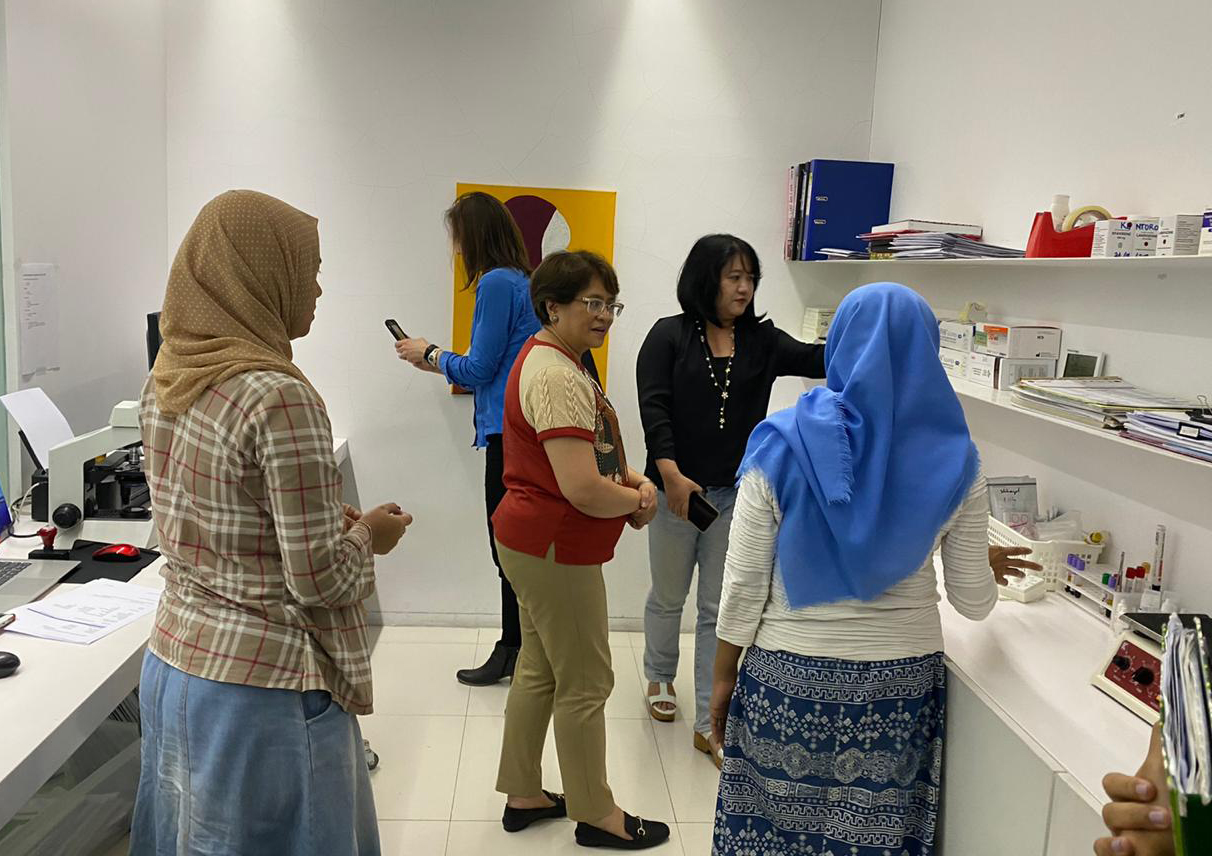An STI programme review was conducted for the first time, together with the HIV Country Review, in Jakarta and Banten provinces from 20-31 January 2020.
The review aimed to explore opportunities for the delivery of STI services within the HIV programme and generate evidence to inform priority STI activities.
The review team looked at available STI data from routine reporting and surveys; held discussions with provincial governments and HIV/STI experts; and visited health facilities providing STI services. The expert team also visited the National Institute of Health Research and Development (NIHRD), Puskesmas, and private clinics in Jakarta and Banten Provinces.

Caption: Assessing private sector involvement in the STI control programme. Photo credit: Beatricia Iswari/WHO and Angsa Merah Clinic, 2020.
Based on observations from the reviewers (WHO, the National AIDS Program, and OPSI – community network), there are opportunities to strengthen STI services in public and private clinics. The ministerial regulation instructs public clinics to include STIs in their essential services. The Minimum Service Standards (SPM) for Indonesia include STI-infected populations and pregnant women as priority populations for HIV testing. Triple elimination of mother-to-child HIV transmission of HIV, syphilis, and hepatitis is also a priority of the Ministry of Health. The national STI case management guidelines have been revised and are in line with WHO recommendations.
Key recommendations from the review were to revitalize and support the provision of STI services in mobile clinics, ensure public-CSO partnership for key populations, and strengthen the surveillance system to determine the magnitude of STIs in Indonesia to inform programming and improve STI case management.
Main image: STI services rely on syndromic diagnosis and a simple laboratory test. Photo credit: Globalindo Clinic, 2020.
